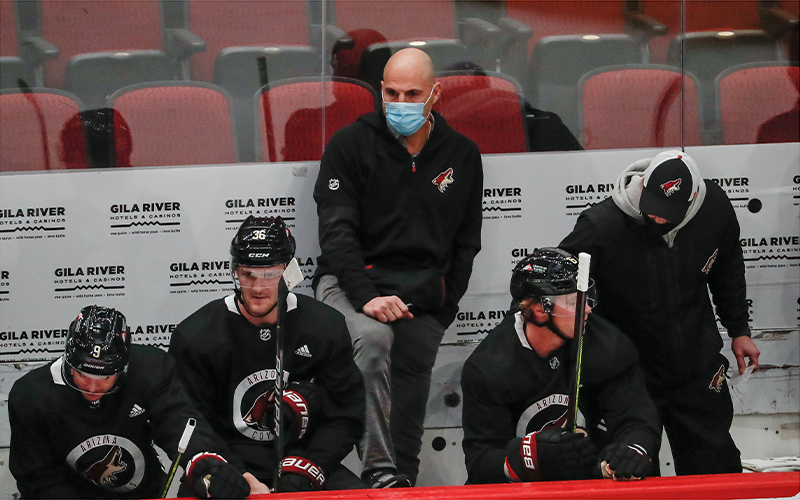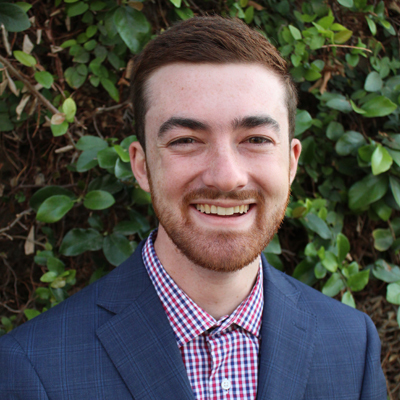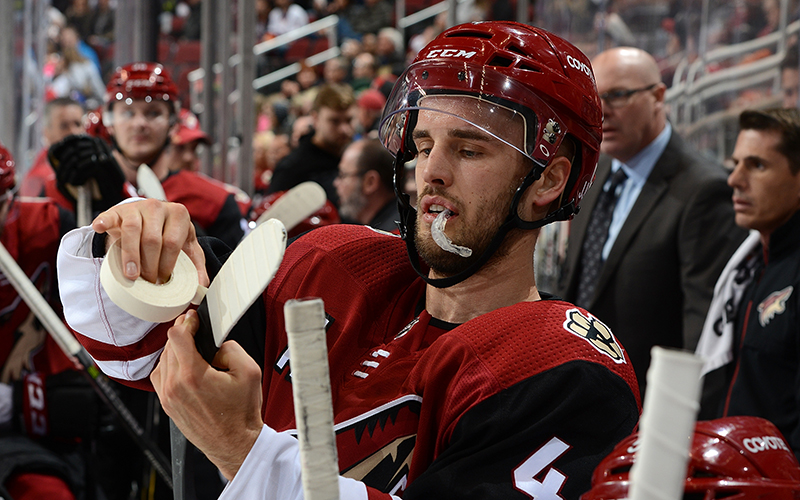
Arizona Coyotes head coach Rick Tocchet called training camp a “crash course.” The team opens the season tonight. (Photo by Kevin Abele/Icon Sportswire via Getty Images)
PHOENIX – The Arizona Coyotes had just 10 days to prepare for the shortened 2020-2021 season, which begins tonight when they host the San Jose Sharks at Gila River Arena.
It wasn’t a typical training camp around the NHL, but coach Rick Tocchet and the Coyotes made the most of their truncated time.
“It’s a crash course,” Tocchet said. “You’re trying to pick your poison on 30 things to go over with. There’s not a lot of time to go through everything, so I had to pick and choose my spots.”
Training camp began Jan. 3 when players and coaches went through medical and fitness testing at Gila River Arena while following the NHL’s COVID-19 protocols.
Coyotes forward Derick Brassard was one of a few players who arrived at training camp from out of state and quarantined for seven days before skating with his new teammates for the first time.
“It’s been a long process, but I’m really happy to be here in Arizona,” said Brassard, who signed a one-year deal with the club on Dec. 30.
The first on-ice session focused on checking all the boxes in conditioning routines and practicing systems structures on the ice.
“You are initially looking to see who could stay with the pace – and stay with it the whole practice,” Tocchet said. “You have to look at skills in different situations, like three-on-twos. We really stressed the details from Day One.”
With a limited number of days to train, the Coyotes gave priority to quality over quantity in each drill.
“We want to make sure that we have enough work, but at the same time, you want to make sure the reps count more so, because you might not get as many in a regular season schedule,” Coyotes goaltender Darcy Kuemper said.
After two days of training camp, the Coyotes jumped into their first of three intrasquad scrimmages that assessed a variety of in-game situations.
With no preseason exhibition schedule, an emphasis was placed on ramping up the intensity to replicate the game-day experience inside Gila River Arena. The scoreboard, LED lights, music, intermission breaks, and Zamboni ice scraping brought a familiar feeling to the players.
“It gave us a game feel out here because before you know it, it’s going to be Game One here,” Coyotes forward Christian Dvorak said. “We’re treating these scrimmages as preseason games. It’s basically our tune-up for the regular season. It’s good to get those TV timeouts and intermissions and make it feel like a real game.”
“It was nice to play a game, feel the puck and be in those game situations,” Coyotes captain Oliver Ekman Larsson said. “It felt nice to be tired and skating.”
The training camp has prepared the Coyotes for a season far from normal. It features a schedule condensed from 82 games to 56, with divisional realignment.
The Coyotes will play eight contests against each of their West Division opponents – the Anaheim Ducks, Colorado Avalanche, Los Angeles Kings, Minnesota Wild, San Jose Sharks, St. Louis Blues and Vegas Golden Knights eight times – packing 56 games into 115 days, including tonight’s home and season opener against San Jose.
“It is a grind,” Coyotes general manager Bill Armstrong said. “It’s going to be a great challenge for us because of the simple fact we play Colorado, who’s probably ranked as the No. 1 team in the NHL, and then you got Vegas, and St. Louis, who are three of the top teams right there. It’s a tremendous challenge for this young group of talented players to come in and fight. It will be a good test of our will. You couldn’t ask for a more exciting division to play in.”
The top four teams in each division will qualify for the Stanley Cup playoffs, with the No. 1 seed facing No. 4, and No. 2 facing No. 3, in each division.
In an effort to minimize travel and potential COVID-19 exposure, teams will conduct their schedule with a baseball-like structure, playing a series of games while in a city rather than just one.
“It’s never been done before,” Coyotes defenseman Niklas Hjarlmarsson said. “It’s going to be a great challenge. It’s going to be a lot of back-to-backs and three games in four nights. We just have to be mentally sharp and be ready when the puck drops every single game and have to push each other to do that.”
The schedule adaptations resemble a college hockey format with back-to-back games on the weekends against one opponent.
“You get better each time you play, whether you win or you lose,” said Coyotes forward Clayton Keller, who recalled his experiences from Boston University. “I like it. There’s not much video after you play a team a certain amount of times. You know what to expect. You know the goalie and who you’re playing against in each matchup. It’s almost like a playoff series in a sense. I’m super excited for it.”
Arizona’s schedule features 16 of its first 24 games on home ice. The Coyotes’ season-long homestand will be 10 games from Feb. 13-Mar. 6. The longest road trip will be eight games from Mar. 29 to Apr. 11.
The Coyotes will start the season with 25% capacity – 3,450 fans – for the team’s six January home games at Gila River Arena.
“It’s going to be nice to have some fans there,” Ekman-Larsson said. “It’s still going to be about us to create that energy and get ready.”
One of the challenges with the upcoming season will be how teams manage COVID-19 and the availability of players. A taxi squad of up to six players will practice and travel with the team in case of any last-minute injuries or positive COVID-19 tests.
“We’re going to have to be flexible and agile to whatever comes your way,” Tocchet said. “Sometimes, you’re getting information 12-24 hours later and you’re going to have to make adjustments.”
It’s just another hurdle NHL players must clear to get back to playing hockey again.
“Is it hard?” Tocchet said. “Yeah. Is it uncomfortable? Yeah, but you have to put up with it. To win, you have to be uncomfortable.”

